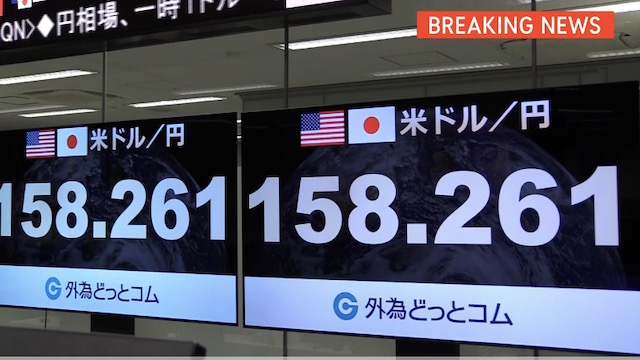Apr 07 (Japan Times) - The Japanese yen is the sweetheart of global speculators. Speculators loath uncertainty but thrive on calculated risk, and the yen offers unparalleled favorable odds for fast-paced global money managers.
Incredible but true, it is with almost 100 percent certainty that any new crisis or sudden bad news in global markets will force a sharp yen appreciation. This was true for the Brexit shock, the recent trade war fears, North Korean missile tests, Japanese earthquakes — you cannot find a global shock that did not result in an immediate surge in the yen. There is no other asset class in the world that offers as much predictability, which is why the yen is loved by speculators around the world.
For Japan, the extraordinarily high sensitivity of its currency to global events is a serious problem. As a de facto lightning rod for global thunderstorms, the yen’s rise brings local disaster. In fact, every economic downturn over the past five decades was preceded by the yen’s appreciation.
There is a clear cause and effect: Almost two-thirds of Japanese companies’ profits come from exports or global sales (through offshore production). So when the yen gets stronger, those overseas earnings translate into less yen.
Clear speak: Corporate Japan’s profits take a big hit when the yen goes up; a ¥1 appreciation cuts profits by almost a full percentage point. This is where the vicious cycle starts that leads from yen appreciation to recession. Lower profits quickly translate into lower bonus payments for Japanese employees, which depresses consumer spending.
In addition, lower profitability for large exporters quickly forces them to demand price cuts from local suppliers and merchandisers. In Japan, the link between large multinationals and local small and medium-size companies is very close. A negative and deflationary feedback loop is quickly started if the yen’s appreciation is sustained.
The negative impact of yen appreciation on corporate profitability is why there is such a strong negative correlation between Japanese stocks and the currency. Almost 90 percent of the time, the yen’s appreciation forces Tokyo stocks to drop. Again, investors and speculators love this sort of high probability and steadfast causality. Yes, it is good investment advise: On any signs of global troubles, go long on the yen and short-sell Japanese stocks.









